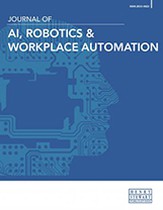Machine learning applications in central banking
Abstract
Central banks are deploying machine learning (ML) across a variety of use cases, reflecting its potential and usefulness in dealing with an increasingly complex environment. The new techniques can help gather more and better information, which is essential for central banks that rely heavily on data. In addition, a key issue is to make sense of the wealth of data available to derive useful analyses on specific economic and financial situations and, in turn, ensure that the insights gained can effectively back the conduct of evidence-based policies. Yet the deployment of the new tools requires further modifications in central banks’ current operational processes and collaboration models, calling for close cooperation between core IT experts, data scientists and business specialists. It also puts a premium on promoting cooperation between central banks through the sharing of national use cases and on drawing relevant lessons from the experiences observed outside the public community.
The full article is available to subscribers to the journal.
Author's Biography
Douglas Araujo is an Economist at the Monetary and Economic Department of the Bank for International Settlements (BIS). Douglas joined the BIS in September 2018, where he has been an economist since May 2022. Previously, Douglas was in the Secretariat of the Basel Committee on Banking Supervision. Before that, he worked at the Central Bank of Brazil between 2011 and 2018. From 2015 to 2018, he also supported a number of countries in enhancing their macroprudential frameworks as a member of International Monetary Fund missions. Douglas was a Fellow at the BIS’s Financial Stability Institute in 2014. Until 2011, Douglas worked in the private sector in Brazilian financial markets. His current research and open source software are at the intersection of machine learning and economics.
Giuseppe Bruno is Head of Division in the Economics and Statistics Department at the Bank of Italy. In his career, he has worked with experts from the Washington Federal Reserve’s Division of Research and Statistics. In 1993 he spent an academic year at the University of Pennsylvania (Philadelphia) for developing algorithms for optimal control of econometric models. In 2000, after a short period at the Statistical Division of OECD, he was appointed Head of the Economic Research Department’s IT unit. In 2016 he was given the responsibility of coordinating a multidisciplinary team on big data, which works across departments with different skills (economists, statisticians, computer scientists). One of the team’s goal was to build a HW/SW infrastructure capable to deal with different kinds of big data related to macroeconomic and microeconomic issues. Over his career he has published over 30 papers in different economic and computational economics journals.
Juri Marcucci is a Senior Economist at the Bank of Italy’s Economics, Statistics, and Research Department. He is involved in applying big data, AI and machine learning to macroeconomic forecasting. He holds a PhD in economics from UCSD and is a lecturer at the Sapienza University of Rome. He is the organiser of the Italian Summer School of Econometrics for the Italian Econometric Association (SIDE) and co-organiser of the international webinar on Applied Machine Learning, Economics, and Data Science (AMLEDS). Juri has been a guest editor for the International Journal of Forecasting, Econometrics, and a special issue of the Journal of Econometrics on machine learning and economic policy. His research interests are big data, text mining, forecasting and applied econometrics. His work has appeared in the Journal of Econometrics, International Journal of Forecasting, Studies in Nonlinear Dynamics & Econometrics and other peer-reviewed international journals.
Rafael Schmidt is currently employed at the Bank for International Settlements within the Monetary and Economic Department (MED), where he oversees the Bank’s statistical data processing, analysis and dissemination systems. Prior to joining MED, Rafael managed the Risk Methodology team in the BIS Risk Management Department. As an academic, Rafael served as an Assistant Professor at the University of Cologne and the London School of Economics and Political Science. His private sector experience includes notable engagements with DaimlerChrysler and Credit Suisse. Rafael possesses degrees in mathematics, economics, statistics and actuarial science, and has earned a PhD as well as a habilitation in financial statistics and econometrics.
Bruno Tissot is the Head of Statistics and Research Support at the Bank for International Settlements (BIS) and Head of the Secretariat of the Irving Fisher Committee on Central Bank Statistics (IFC). He is also the BIS Representative in the Statistical Data and Metadata Exchange (SDMX) Sponsors’ Committee and chairs the international Working Group on Securities Databases (WGSD). He has been working at the BIS since 2001, first as Senior Economist and Secretary to the Markets Committee of Central Banks in the Monetary and Economic Department and then as the Adviser to the General Manager and Secretary to the BIS Executive Committee. Between 1994 and 2001 he worked for the French Ministry of Finance, having graduated from École Polytechnique (Paris) and the French Statistical Office, INSEE.
